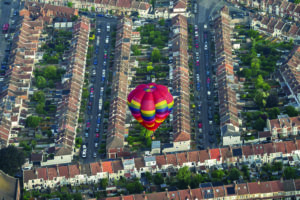From tea to coffee: Nepal’s changing beverage scene
Kathmandu, July 25: Coffee is steadily gaining popularity in Nepal, a country historically dominated by its strong tea culture. Tea is deeply woven into everyday life and social customs, typically served sweet and milky in glass tumblers and central to social gatherings. So integral is tea to Nepali culture that morning greetings often include the question, “Have you had your tea?” Nepal is both a major producer and consumer of tea, with tea shops found throughout the country.
However, since the 1990s, coffee has been increasingly embraced, especially in urban areas and among younger generations. One key figure in this coffee rise is Gagan Pradhan, founder of Himalayan Java. Starting from a single cafe in an alley in Kathmandu, Himalayan Java has grown into a chain with 84 locations nationwide, playing a pivotal role in popularizing coffee culture. Pradhan estimates there are about 7,000 cafes in Nepal, though major international brands like Starbucks have yet to enter the market. These cafes distinguish themselves with modern interiors, lighting, and a diverse menu that includes 10 to 15 hot and cold coffee beverages—far more variety than the traditional tea stalls, which mainly serve black or milk tea.
Coffee is regarded as a premium beverage and lifestyle choice in Nepal. While a cup of coffee costs roughly $2 at Himalayan Java—equivalent to about five cups of tea or a local meal—the cafes attract office workers, students, and others seeking comfortable social or study spaces. This shift mirrors a wider trend across Asia, where rising middle classes in traditionally tea-drinking countries are adopting coffee alongside global cultural influences.
Nepal is also ramping up its own coffee production. Although most coffee consumed in the country is currently imported, coffee plantations are emerging in the eastern mountain regions traditionally known for tea. In fiscal year 2021-22, Nepal produced around 400 tons of coffee, a small fraction compared to 26,000 tons of tea, but the National Tea and Coffee Development Board expects rapid expansion in coffee farming.
As Nepalis increasingly embrace coffee and café culture thrives, coffee is becoming an important complement to Nepal’s cherished tea traditions, signaling a dynamic shift in the country’s beverage landscape. (AP)

largest event of its kind in Europe, in Bristol, on Friday. (PTI)



